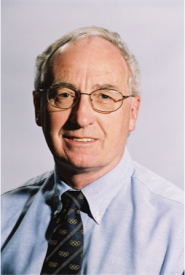


During the teen years, sport participation takes place during the turmoil of adolescence and is a period during which most sport participants define themselves as athletes and commit to high performance and the rigours of training for athletic excellence, drop out, or elect to enjoy continued sport participation at a lower level. During this webinar, Dr. Colin Higgs will take a closer look at why this stage of development is so challenging, and explore what you can do to help your students and athletes derive maximum benefit from participation in health enhancing physical activity.
Dr. Colin Higgs is Professor Emeritus at Memorial University of Newfoundland, Canada. Prior to his retirement Dr. Higgs served as the Professor and Dean of the School of Human Kinetics. Dr. Higgs has spent a large part of his career in the area of improving sport for persons with a disability. A well-known speaker around the globe, Dr. Higgs international work has focused on using sport to reduce the lives of disadvantaged youths.
Part I: What do we know?
Exploring what we know about the teenage brain and how it evolves through adolescents. (19:09)
Part II: Wiring the teenage brain
Continuing the exploration of the teenage brain, focusing on the teenage prefrontal cortex, executive function and self-regulation. (16:29)
Part III: Teens and sleep
Confronting the problem around teens and sleep, specifically as it relates to school. (11:22)